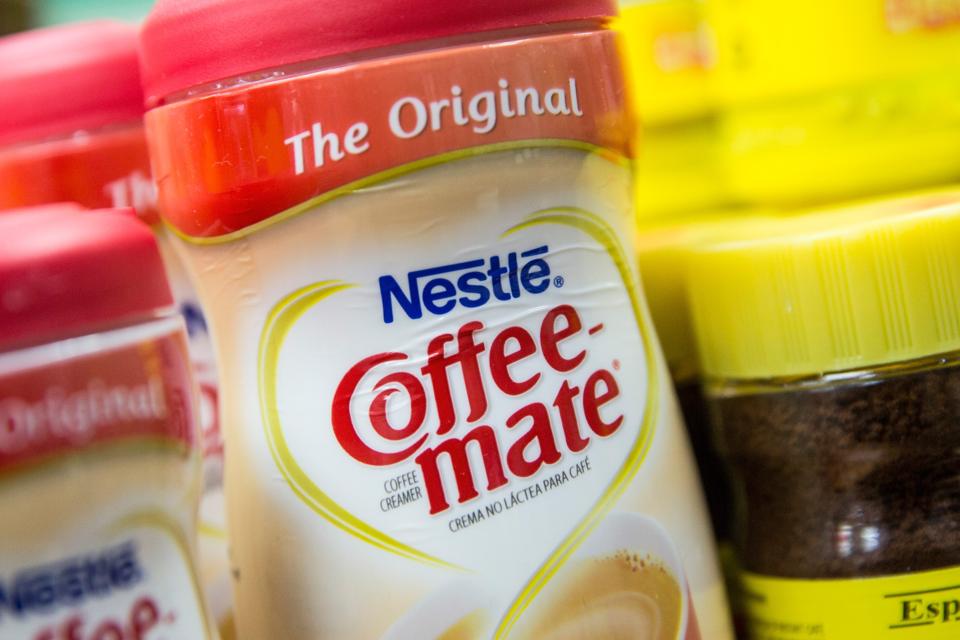In the fast-paced world of marketing, even carefully planned campaigns can take unexpected turns. Coffee Mate’s recent collaboration with HBO’s The White Lotus shows how brands must be prepared to pivot when reality doesn’t match the marketing plan. [Spoiler Alert – details of the final episode of The White Lotus Season 3 follow.]
The Unexpected Plot Twist
Coffee Mate had partnered with HBO to release two limited-edition creamers themed around the show’s third season set in Thailand: Thai iced coffee and piña colada flavors. What the Nestlé-owned brand didn’t know was that in the season finale, poisoned piña coladas would become a central plot point. A character nearly kills his family using the drink spiked with seeds from a poisonous tree.
Reacting in Real Time
So what happens when your branded piña colada creamer suddenly shares the spotlight with a murder plot involving poisoning the same tropical drink? “Poison” is an association food brands usually try to avoid.
When the episode aired, Coffee Mate’s marketing team responded swiftly on Instagram with a simple yet perfect message: “Well this is awkward.” That single post resonated with consumers and other brands alike precisely because it acknowledged the unexpected connection in an authentic way.
This rapid response was possible because of Coffee Mate’s approach to marketing. As Daniel Jhung, president of Nestlé USA’s coffee and beverage division explained to the Wall Street Journal, they operate with “a virtual war room” during key events. They observe reactions in real time and respond quickly without requiring multiple approval layers.
The Empowerment Advantage
Anyone who’s worked in marketing knows the frustration of waiting for approvals while a timely opportunity slips away.
The Coffee Mate team’s ability to react wouldn’t have been possible without proper empowerment. As Jhung noted, “If they’ve got to go through five layers of approval, you’re not going to be able to do these things in real time.” Some marketers still operate with rigid approval structures, which can kill momentum and relevance.
Being Part of the Cultural Conversation
For Coffee Mate, these entertainment collaborations are more than just flavor extensions. They are intended to make the brand “be part of the zeitgeist and pop culture, and resonate with young consumers,” according to Jhung. By aligning with buzzy properties like The White Lotus, the brand positions itself within conversations that traditional advertising can’t penetrate. Of course, there are risks when plot lines are closely guarded secrets.
Sustaining Momentum
Marketers face a delicate balance: When do you amplify a moment, and when do you let it naturally fade away? Coffee Mate is taking an organic approach to this unexpected attention. Jhung notes, “If the conversation naturally dies, then it’ll die. But sometimes it brings new life because someone says something clever, or another brand says something else, and you can continue the dialogue.”
The Coffee Mate Instagram account responded to many comments on their original post but didn’t add new piña colada or White Lotus content.
Lessons for Today’s CMOs
This case offers a few valuable takeaways for marketing leaders:
- Calculated risks can pay off – Entertainment collaborations come with uncertainty, but the potential cultural relevance can be worth it.
- Empower your teams – Real-time marketing requires trust and streamlined approval processes.
- Authenticity matters – Coffee Mate’s acknowledgment of the awkward situation resonated because it was genuine.
- Stay flexible – Be prepared to adapt when your campaign takes an unexpected turn.
- Follow the conversation – Let consumer interest guide how long you sustain a moment rather than forcing it.
Whether this unexpected connection helped or hurt Coffee Mate’s piña colada creamer sales remains to be seen, but the brand has already won by demonstrating marketing agility at its finest. The ability to pivot gracefully might just be the most valuable marketing skill we can develop.

